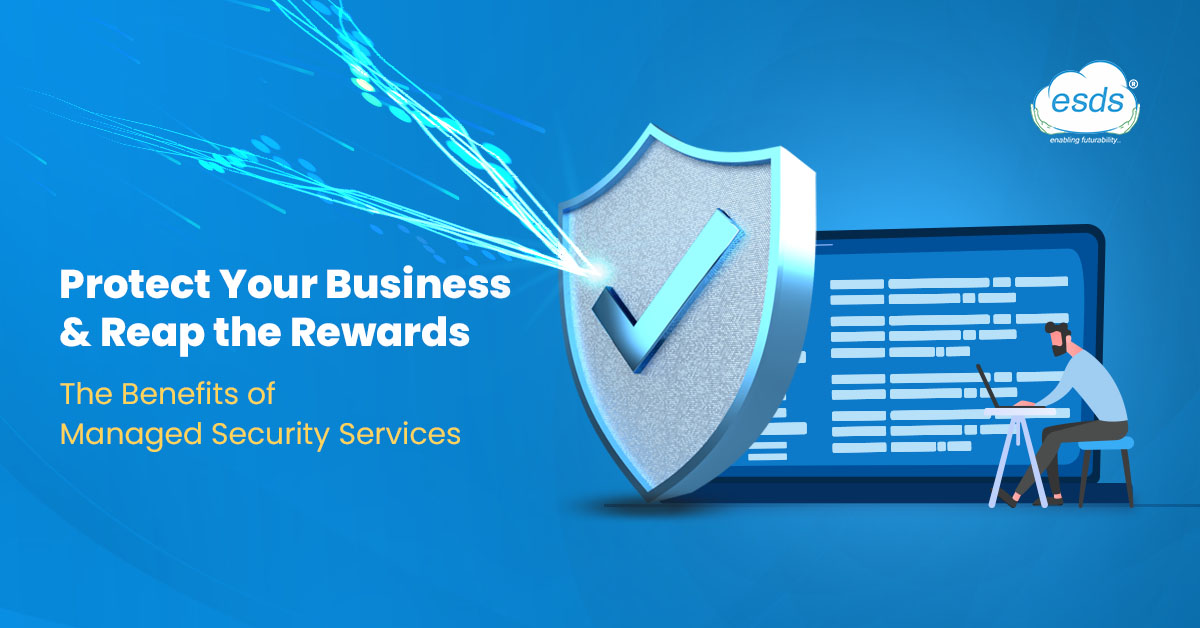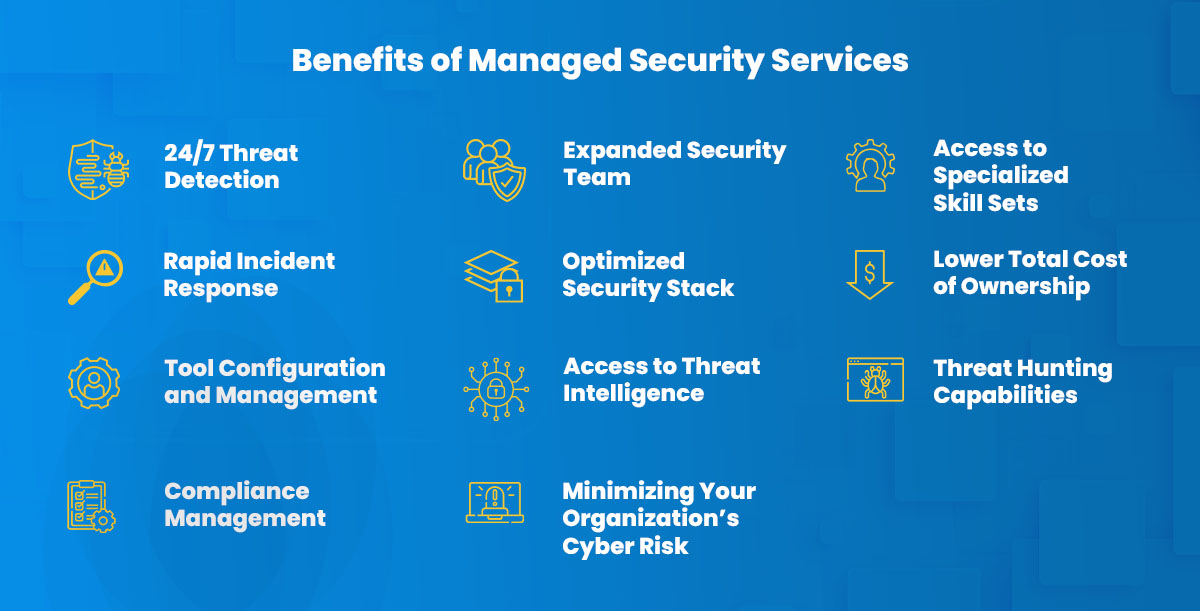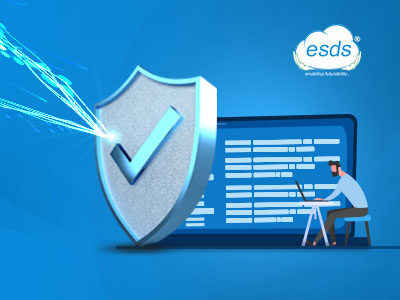Protect Your Business and Reap the Rewards: The Benefits of Managed Security Services
In today’s digital age, businesses face many cyber threats that can harm their operations. The risks to your business are significant, from malware and phishing attacks to ransomware and data breaches. As a result, many organizations are turning to managed security services to protect their assets.

Managed security services refer to outsourcing security management to a third-party provider. The provider monitors your network 24/7, identifies potential threats, and takes action to mitigate them. This article will explore the benefits of managed security services and how they can help your business stay secure, compliant, and competitive.
What are Managed Security Services?
Managed security services are a type of service provided by third-party vendors that help organizations secure their digital assets. These services can include various security measures, such as intrusion detection and prevention, firewall management, vulnerability assessment, and more. Managed security services providers (MSSPs) use a combination of advanced technology, processes, and expertise to protect your business from cyber threats.
MSSPs offer a range of services that can be customized to meet your specific business needs. For example, they can monitor and manage your network and endpoints, conduct regular vulnerability assessments and penetration testing, and provide incident response and forensic analysis. Additionally, MSSPs can help you comply with industry-specific regulations, such as HIPAA and PCI DSS, and provide your employees with training and education on best cybersecurity practices.
Benefits of Managed Security Services for businesses

There are numerous benefits to using managed security services for your business. Here are just a few:
- Advanced Threat Detection and Prevention
MSSPs use advanced technology, such as artificial intelligence and machine learning, to detect and prevent cyber threats. They can identify potential attacks in real-time and take action to prevent them from causing harm to your business. Additionally, MSSPs can provide ongoing threat intelligence to keep your defences up to date and protect your business against new and emerging threats.
- Reduced Costs
Outsourcing your security management can be a cost-effective solution for your business. Rather than hiring an in-house security team, which can be expensive and time-consuming, you can rely on a managed security services provider to handle your security needs. MSSPs typically offer flexible pricing models, such as pay-per-device or pay-per-user, which can help you manage costs more efficiently. Additionally, MSSPs can help you avoid the costs associated with data breaches, such as legal fees, fines, and reputational damage.
- Scalable Solutions
As your business grows, your security needs may change. MSSPs can provide scalable solutions that can adapt to your evolving needs. Whether you need to add new users or devices or expand your security to new locations, MSSPs can help you do so quickly and easily. Additionally, MSSPs can provide 24/7 support to ensure that your business is always protected.
- Free Up Your Staff’s Valuable Time
Managing your security in-house can be time-consuming and distracting for your employees. By outsourcing your security management to an MSSP, you can free up your staff’s valuable time to focus on core business activities. This can lead to increased productivity, improved employee morale, and better business outcomes.
- Peace of Mind
Perhaps the most significant benefit of managed security services is the peace of mind they can provide. Knowing that your business is protected by experts who are monitoring your network 24/7 can give you the confidence to focus on what matters most: growing your business.
Risks of not having Managed Security Services
Having managed security services in place can protect your business from cyber threats. Here are some of the risks you may face:
- Data Breaches: Data breaches can be costly and damaging to your business. They can result in losing sensitive information, such as customer data or intellectual property, which can harm your reputation and lead to legal and financial consequences.
- Downtime: Cyber-attacks can cause downtime for your business, leading to lost productivity and revenue. Additionally, rest can harm your reputation and cause customers to lose trust in your business.
- Compliance Issues: Many industries have specific regulations that businesses must comply with, such as HIPAA and PCI DSS. Failure to comply with these regulations can result in fines and legal consequences.
- Reputational Damage: Cyber-attacks can harm your reputation and cause customers to lose trust in your business. This can be difficult to recover from and can impact your bottom line.
Managed Security Services vs. In-house Security
Choosing between managed security services and in-house security can be challenging. Here are some of the key differences:
- Expertise
Managed security services providers have a team of experts who specialize in cybersecurity. They have the knowledge and experience to identify and mitigate cyber threats quickly and efficiently. In-house security teams may not have the same level of expertise and may struggle to keep up with evolving threats.
- Cost
In-house security can be expensive, requiring hiring and training a team of security professionals. Managed security services, on the other hand, offer flexible pricing models that can be more cost-effective for your business.
- Scalability
Managed security services providers can provide scalable solutions that can adapt to your business needs. In-house security may not be as flexible and may struggle to keep up with your business’s growth.
- Technology
Managed security services providers use the latest technology and tools to protect your business from cyber threats. In-house security may not have access to the same advanced technology and may struggle to keep up with evolving threats.
How to choose the right Managed Security Service Provider
Choosing the right managed security service provider is crucial for your business’s security. Here are some factors to consider when making your decision:
- Experience
Look for a managed security service provider with a proven track record of success. Check their references and ask for case studies to see how they have helped other businesses.
- Expertise
Ensure that the managed security service provider has the expertise to meet your specific business needs. Look for a provider who specializes in your industry and has experience with the regulations you need to comply with
- Technology
Ensure that the managed security service provider uses the latest technology and tools to protect your business from cyber threats. Ask about their monitoring and detection capabilities and ensure that they can provide 24/7 support.
- Cost
Consider the cost of managed security services and look for a provider who offers flexible pricing models that can be tailored to your business needs.
- Communication
Ensure that the managed security service provider has open lines of communication and can provide regular updates on your security status. Look for a provider who can provide real-time alerts and notifications in the event of a cyber-attack.
Managed Security Services pricing models
Managed security services providers offer a range of pricing models to meet your business needs. Here are some of the most common:
- Pay-per-device
With this model, you pay a fixed fee for each device that is covered by the managed security service provider. This can be an effective pricing model if you have a small number of devices to protect.
- Pay-per-user
With this model, you pay a fixed fee for each user who is covered by the managed security service provider. This can be an effective pricing model if you have a large number of users who need protection.
- Flat-rate
With this model, you pay a fixed fee for all of the managed security services provided by the provider. This can be an effective pricing model if you have a predictable level of security needs.
- Custom
With this model, you can work with the managed security service provider to create a customized pricing plan that meets your specific business needs.
Managed Security Services case studies
Here are some case studies that illustrate the benefits of managed security services:
- Company A
Company A is a small business that provides financial services to clients. They were struggling to keep up with their security needs and were concerned about the cost of hiring an in-house security team. They decided to use a managed security services provider to handle their security needs. The provider conducted regular vulnerability assessments and provided ongoing monitoring and management of their network. As a result, Company A was able to improve its security posture, comply with industry regulations, and free up its staff’s valuable time.
- Company B
Company B is a large healthcare organization that must comply with HIPAA regulations. They were struggling to keep up with their security needs and were concerned about the risk of data breaches. They decided to use a managed security services provider to handle their security needs. The provider conducted regular vulnerability assessments and provided ongoing monitoring and management of their network. Additionally, the provider helped them comply with HIPAA regulations and provided training to their employees on best practices for cybersecurity. As a result, Company B was able to improve its security posture, reduce the risk of data breaches, and avoid costly fines and legal consequences.
Frequently asked questions about Managed Security Services.
- What are managed security services?
Managed security services are a type of service provided by third-party vendors that help organizations secure their digital assets. These services can include a wide range of security measures, such as intrusion detection and prevention, firewall management, vulnerability assessment, and more.
- What are the benefits of managed security services?
Managed security services offer numerous benefits, including advanced threat detection and prevention, reduced costs, scalable solutions, freeing up your staff’s valuable time, and peace of mind.
- How do I choose the right managed security service provider?
When choosing a managed security service provider, consider factors such as experience, expertise, technology, cost, and communication.
- How much do managed security services cost?
Managed security services providers offer a range of pricing models, including pay-per-device, pay-per-user, flat-rate, and custom. The cost will depend on your specific business needs.
- What are some case studies that illustrate the benefits of managed security services?
Case studies have shown that managed security services can help businesses improve their security posture, comply with industry regulations, and avoid costly fines and legal consequences.
Conclusion:
In today’s digital age, cyber threats are a significant risk to your business. That’s why it’s crucial to have proper security measures in place. Managed security services can help you protect your business from cyber threats, reduce costs, free up your staff’s valuable time, and provide peace of mind. Choosing the right managed security service provider and pricing model ensures that your business is secure, compliant, and competitive. So don’t wait until it’s too late; consider managed security services for your business today.
- Top 5 Data Center Trends for 2024 - October 11, 2023
- Top 15 Cloud Computing Trends 2024 - October 4, 2023
- What is Infrastructure Monitoring and Why Infrastructure Monitoring Tool is Important for Your Business? - September 20, 2023
